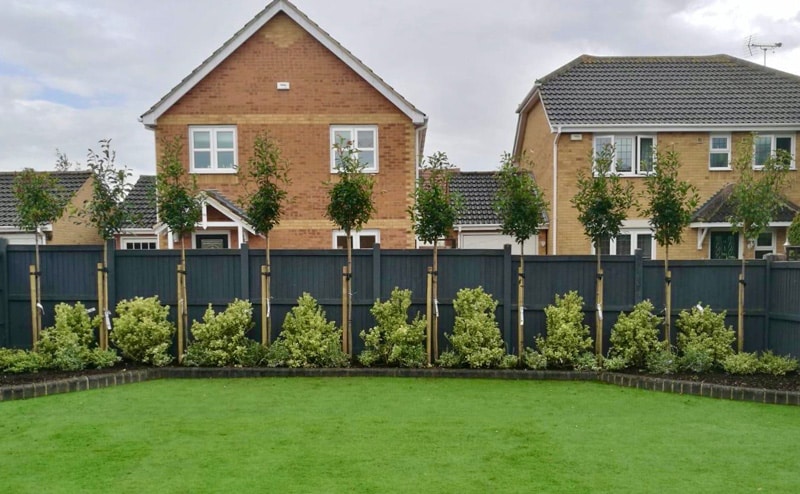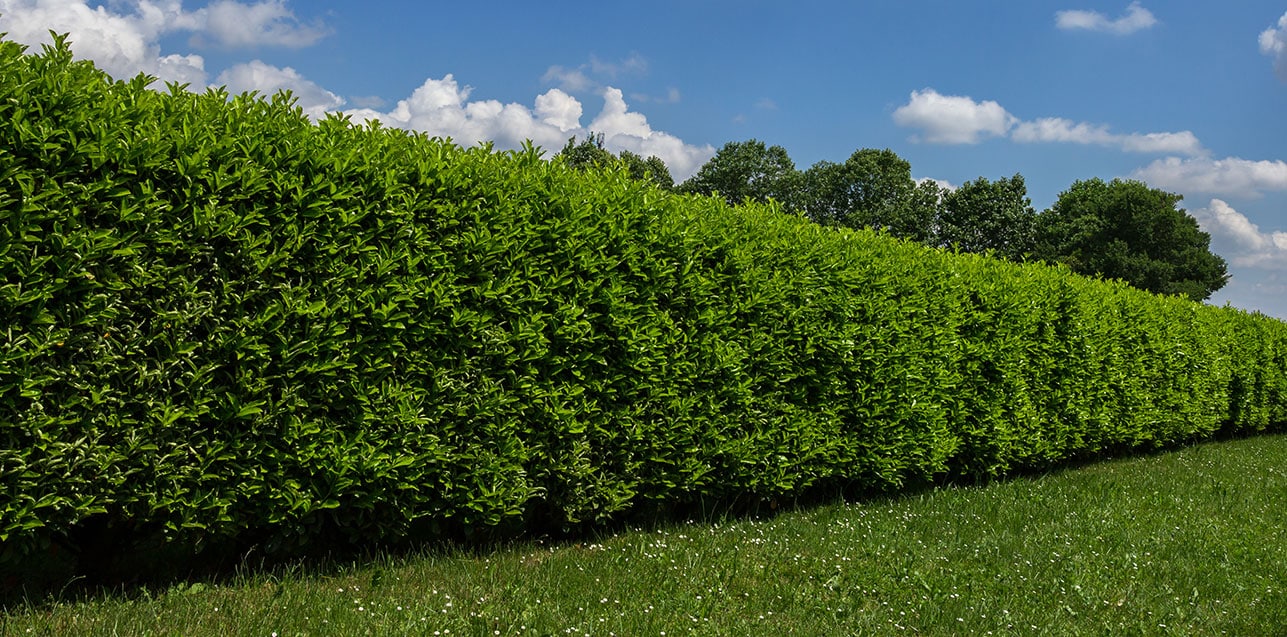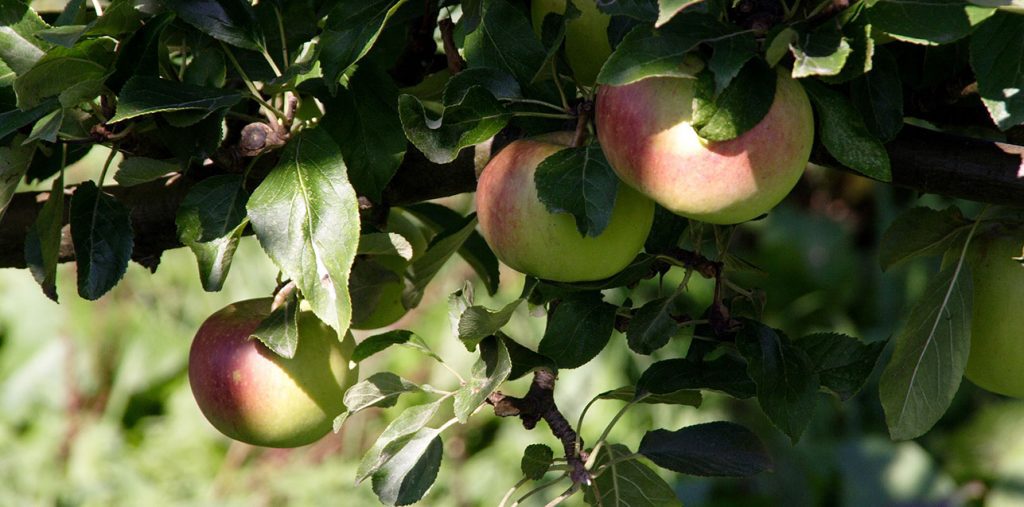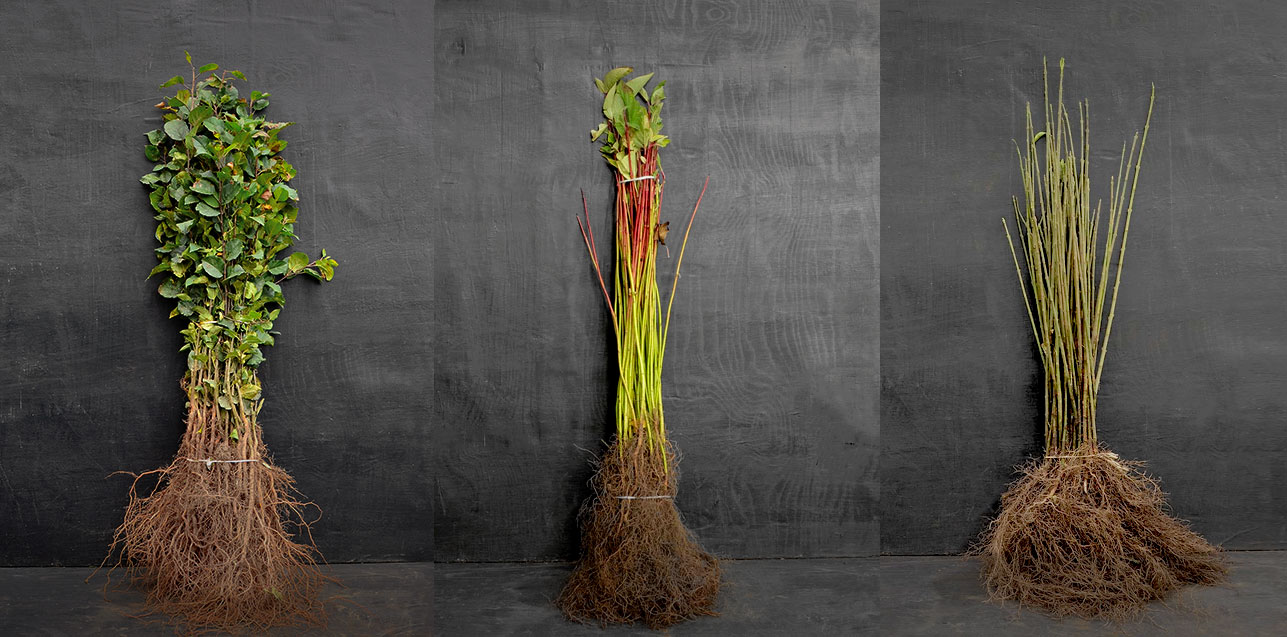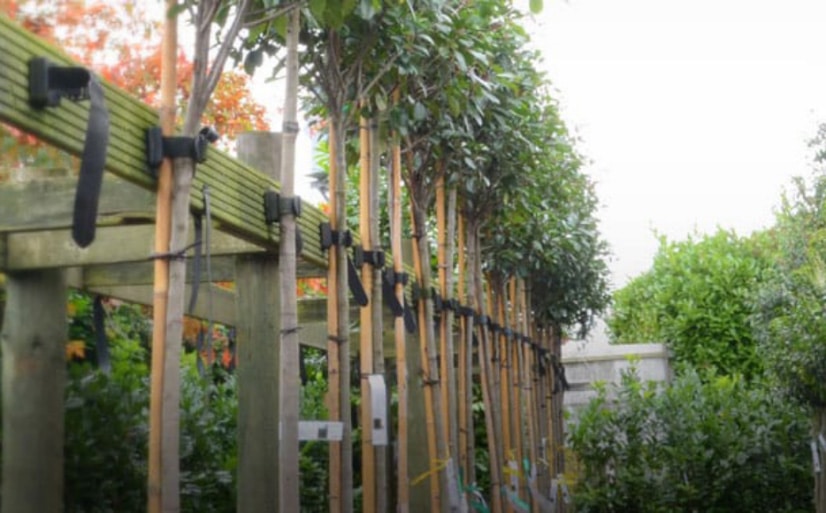As the days lengthen and the temperatures increase, you might be spending more time enjoying your garden and perhaps considering ways to enhance its privacy. Planting trees for natural summer screening is a great way to obscure overlooking windows or soften strong sunlight.
At King & Co we have a variety of trees to suit your needs. Explore some of our top picks for screening trees and take the first step towards achieving your desired garden privacy this summer!
Evergreen or Deciduous?
When you’re choosing trees one of the first things to consider is whether evergreen or deciduous varieties would better suit your needs.
Evergreen trees retain their foliage year-round so they are a fantastic choice for providing consistent privacy and structure throughout the year. They also bring welcome colour to gardens during the winter months, offering a splash of green when many other plants are bare.
In contrast, deciduous trees lose their leaves in the winter but offer a wonderful display of seasonal changes. They bring beauty to gardens with their spring blossoms, fresh green leaves in spring and summer, and a spectacular show of autumnal colours. Even when bare, their branches can still offer some screening while allowing more light into your garden during the darker winter months! Deciduous trees are ideal for those who prefer not to have year-round full coverage and wish to maximise sunlight during the colder seasons.
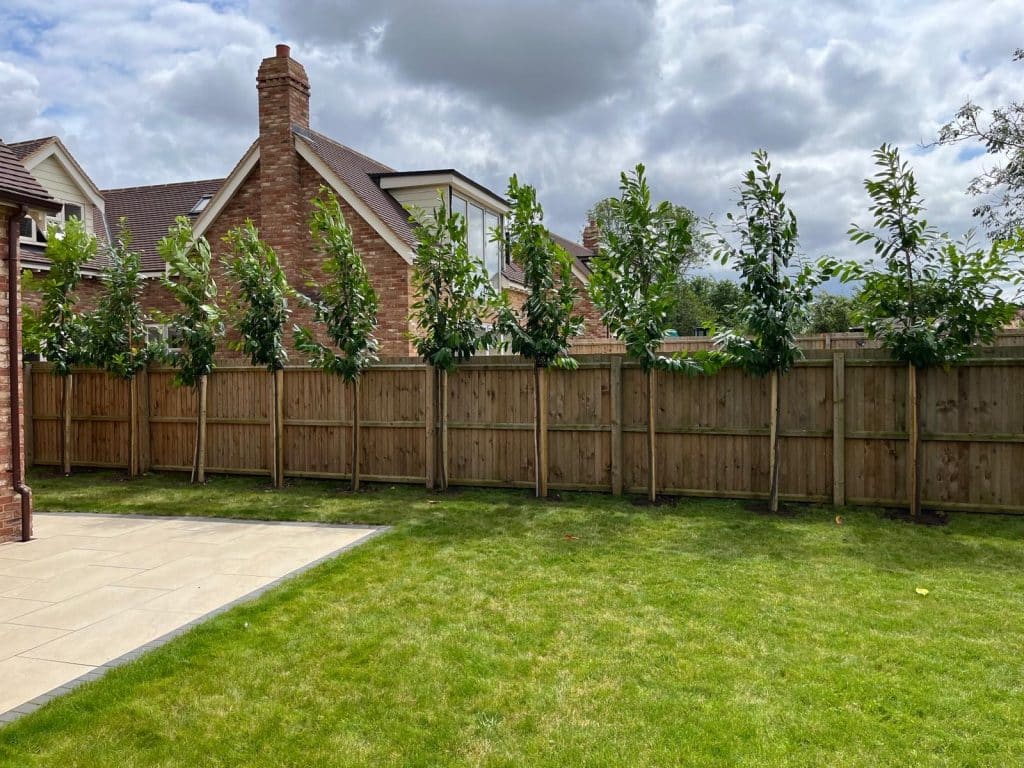
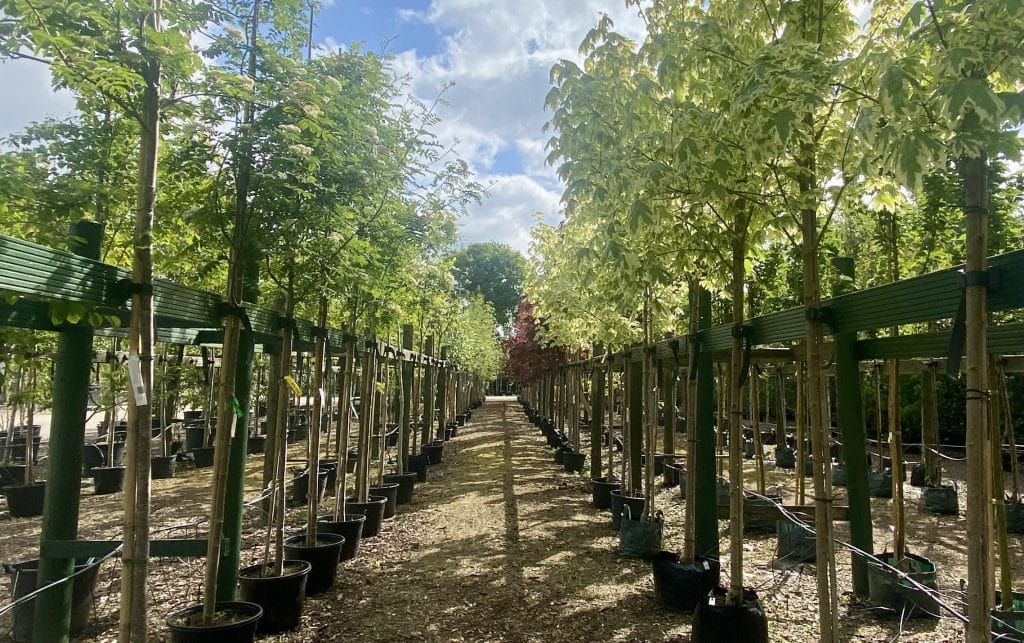
Our Top Picks – Evergreens
If you’re looking for year-round foliage, privacy and structure then you may want to plant an evergreen tree! Our most popular evergreen varieties are Photinia Red Robin, Cherry laurel and Portuguese laurel! Seen here with clear stems and a full head of foliage, these standard trees are ideal for creating a raised hedge that sits above the fence line without overwhelming your garden space.
Please also note that all three evergreen varieties are available in hedge form should you prefer continuous foliage from the ground up!
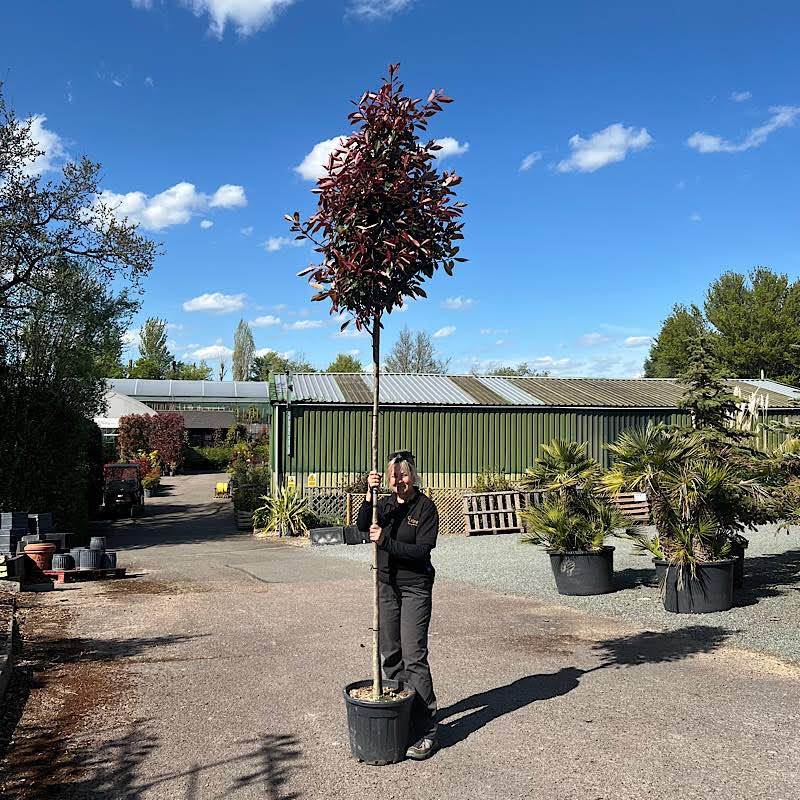
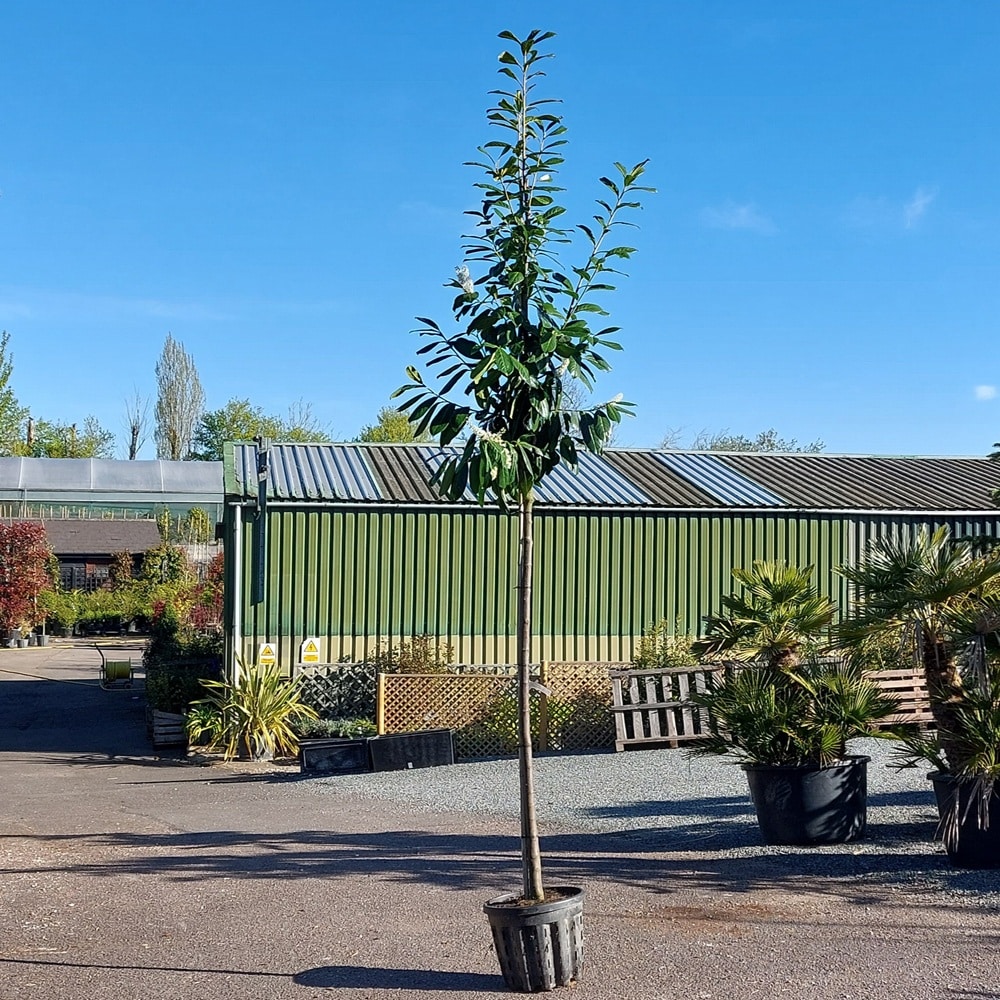
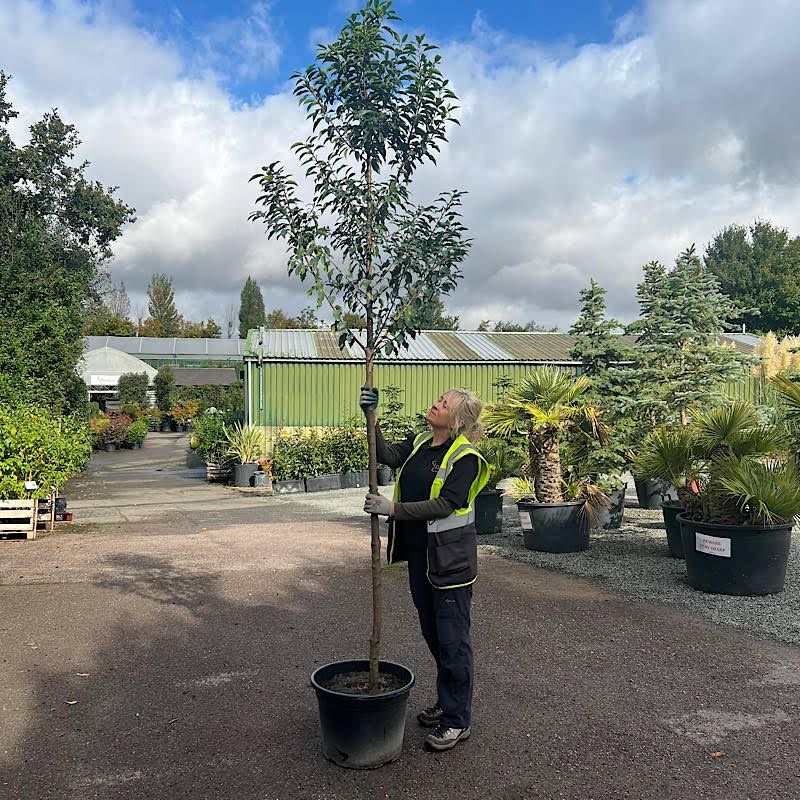
Our Top Picks – Deciduous
As previously mentioned, deciduous trees lose their leaves in winter but offer a wonderful array of seasonal changes to gardens. For effective summer screening, we particularly recommend the Norway maple (specifically the Drummondii and Royal Red varieties), the Himalayan birch, and the Ornamental pear.
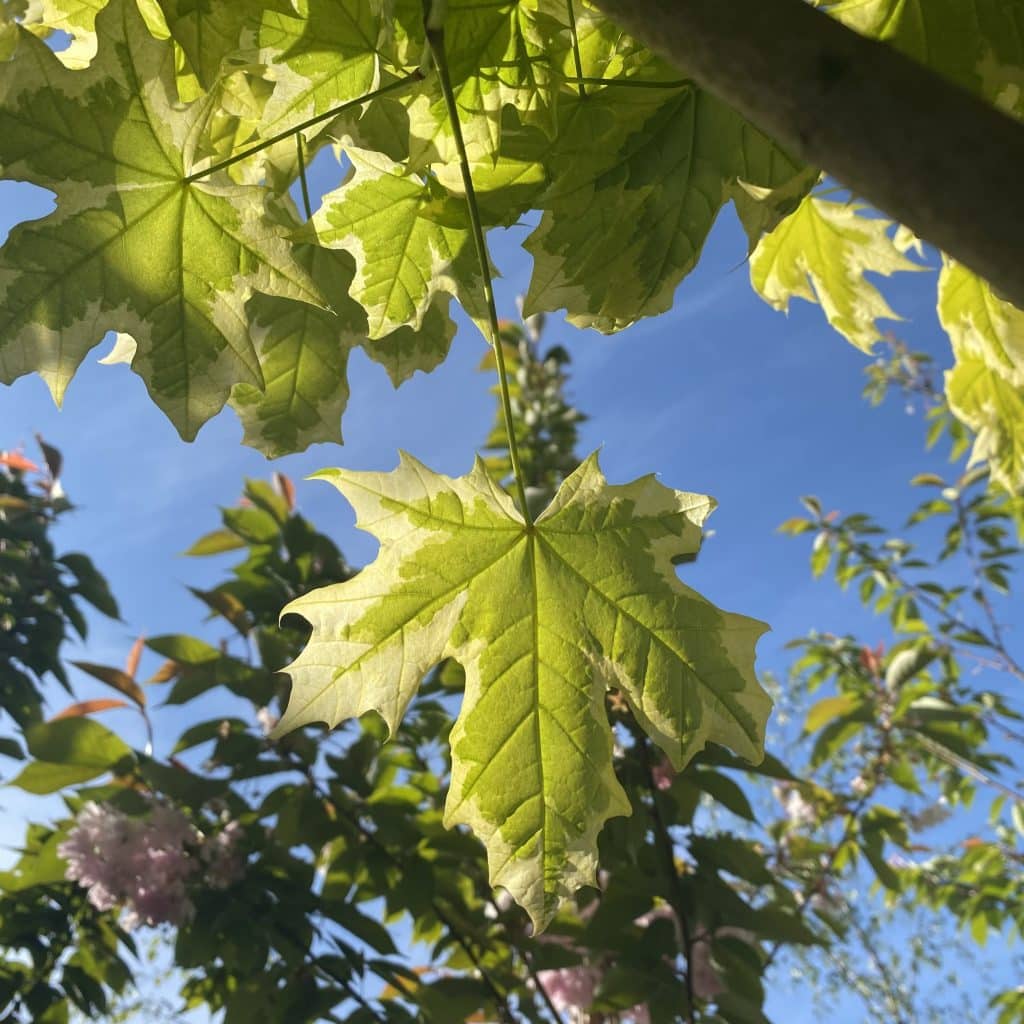
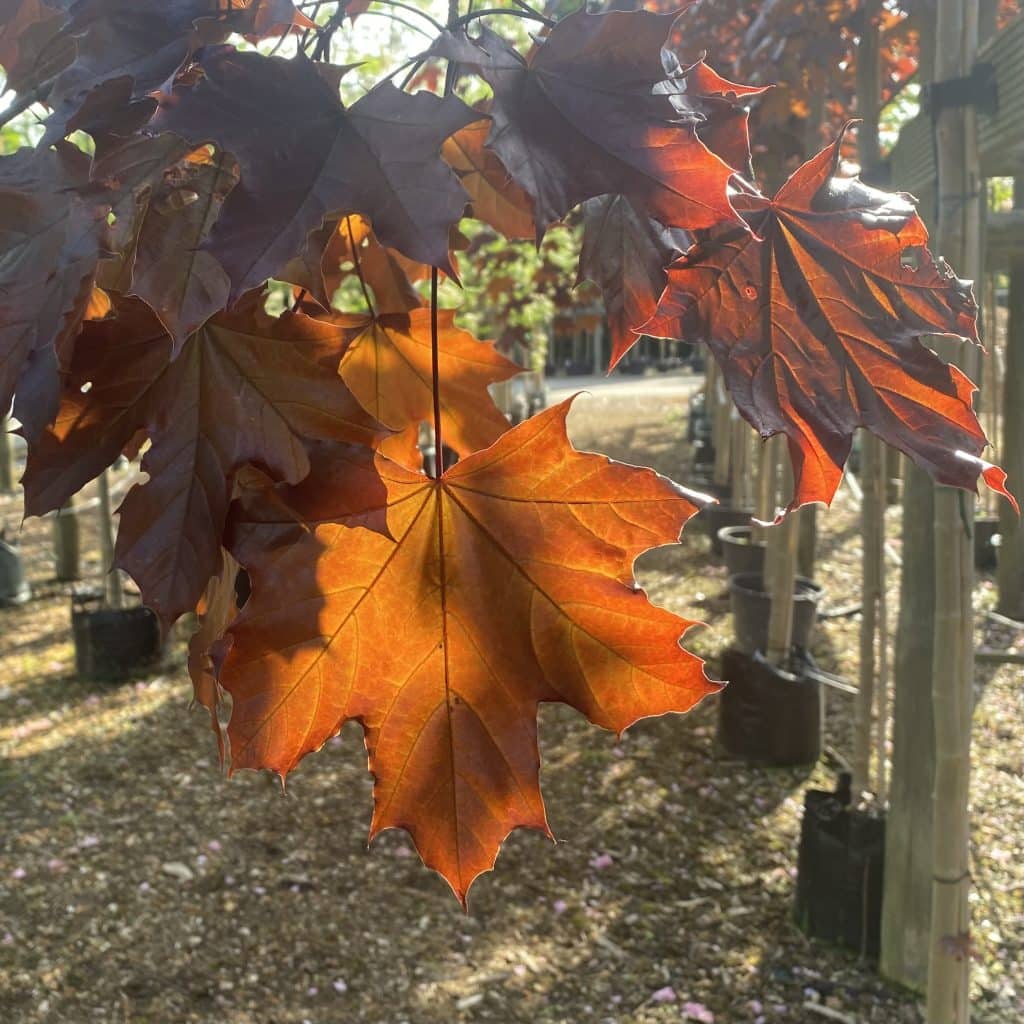
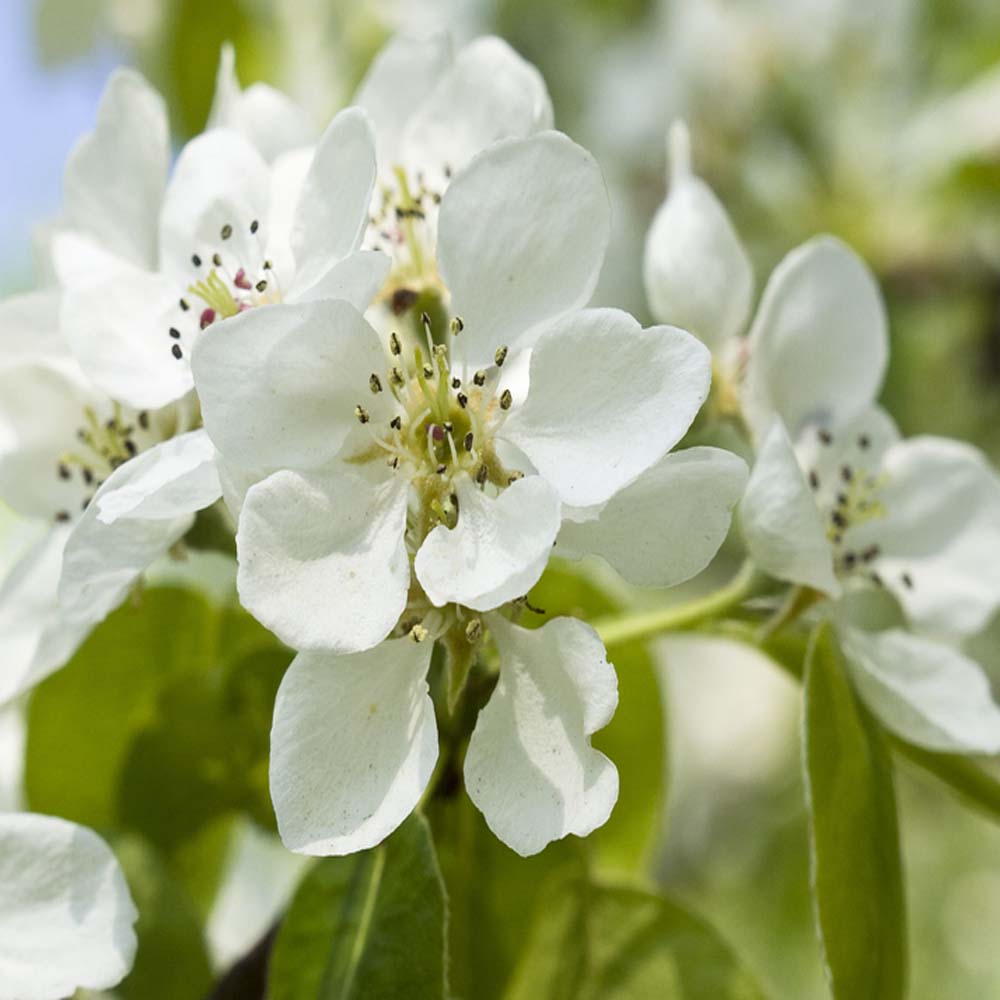
Norway maple 🍁: If you’re exploring options for summer screening, you could consider the Acer platanoides ‘Drummondii’ or ‘Royal Red’ for their unique visual appeal. The ‘Drummondii’ maple has beautiful variegated leaves that create an eye-catching focal point in your garden. Alternatively, the ‘Royal Red’ maple has vibrant purple-red foliage that adds a wonderful point of contrast. Both of these maple varieties develop dense canopies as they mature, this creates a full and appealing screen during the summer months.
Please note that both the ‘Drummondii’ and ‘Royal Red’ maples will reach a mature height of 10-15m and a spread of 8-10m. This means that they are best suited for medium to large-sized gardens where they have ample space to grow.
Ornamental pear 🌼: If you have limited space, an upright tree such as Pyrus calleryana ‘Chanticleer’ (Ornamental pear) might be a great option for you. The ‘Chanticleer’ variety has an upright shape and a compact crown, making it well-suited for smaller gardens or boundary planting. It also offers dense foliage, spring flowers, and attractive ornamental leaves, providing good summer screening and seasonal appeal.
Himalayan birch ❄️: Himalayan birch has an open branching structure that allows light to filter through the canopy. This creates a pleasant dappled sunlight and shade effect, ideal if you have a garden with limited sunlight or you are seeking a softer screening option!
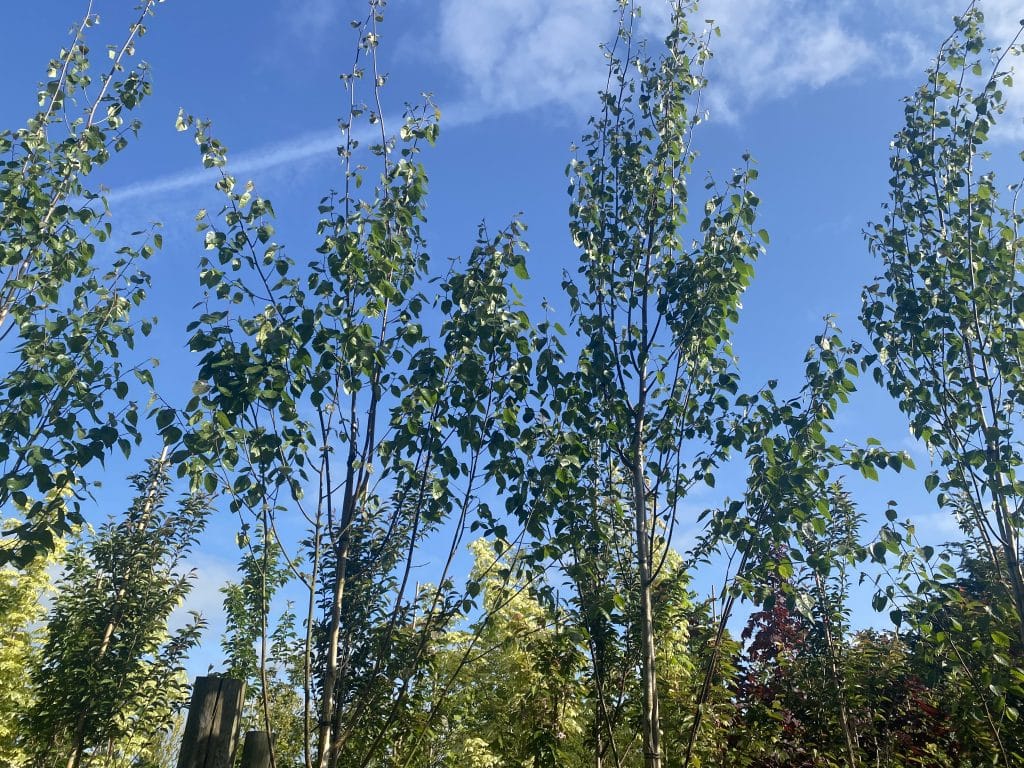
Discover trees for natural summer screening today!
Frequently Asked Questions
Bare root trees can be planted from November to March. Container grown trees can be planted all year round. Watch our video guide on how to do so.
As a guide, we recommend giving each tree 5 litres of water every other day during the growing season. The water should be directed at the base of the trunk.
5 Litres is a good starting point to make sure that the ground stays moist, if the soil starts to become saturated or dry adjust the amount as required.
We can offer our planting service if you are local to the nursery. Planting prices are dependent on the size of the pot. Please contact us if you would like a quote.

